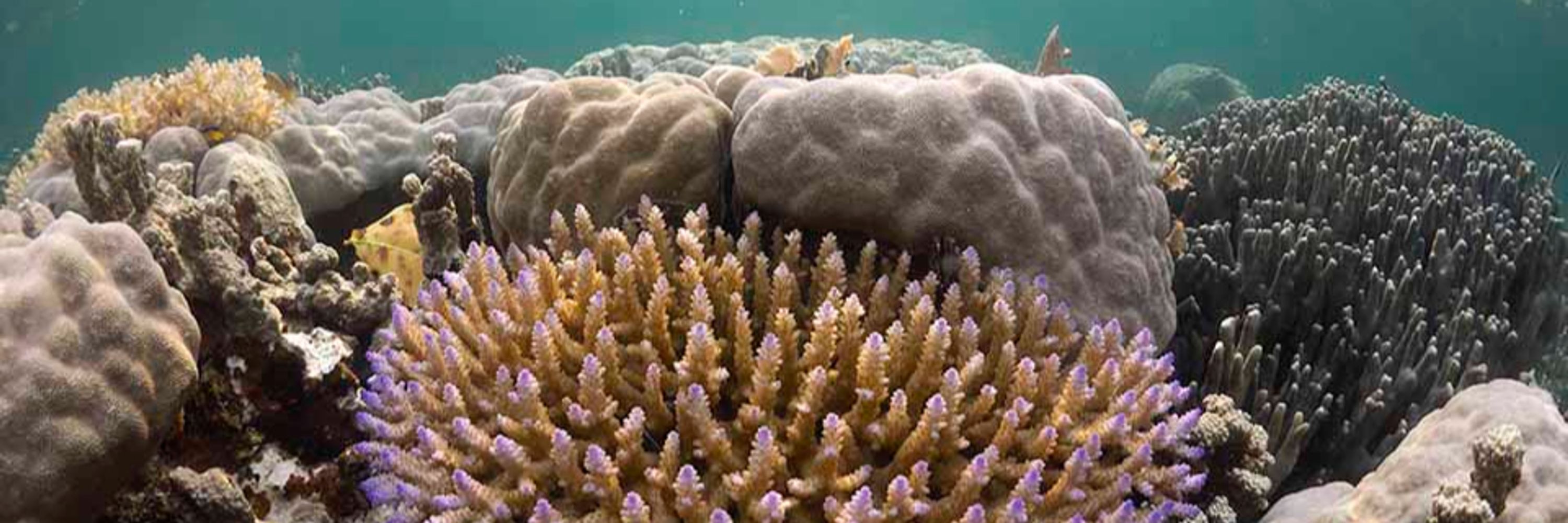
The Coralassist Lab. Favorite activity: swimming over a healthy coral reef!
🟩🟩🟩🟩🟩
😃😃😃😃😃
🟩🟩🟩🟩🟩
😃😃😃😃😃
Part of the fruitful Coralassist Lab - PICRC collaboration, with support from the Horniman Museum, Uni. Of Exeter, Derby Uni. & Uni. Victoria
Funded by ERC, with support from UKRI / NERC
(9/9)
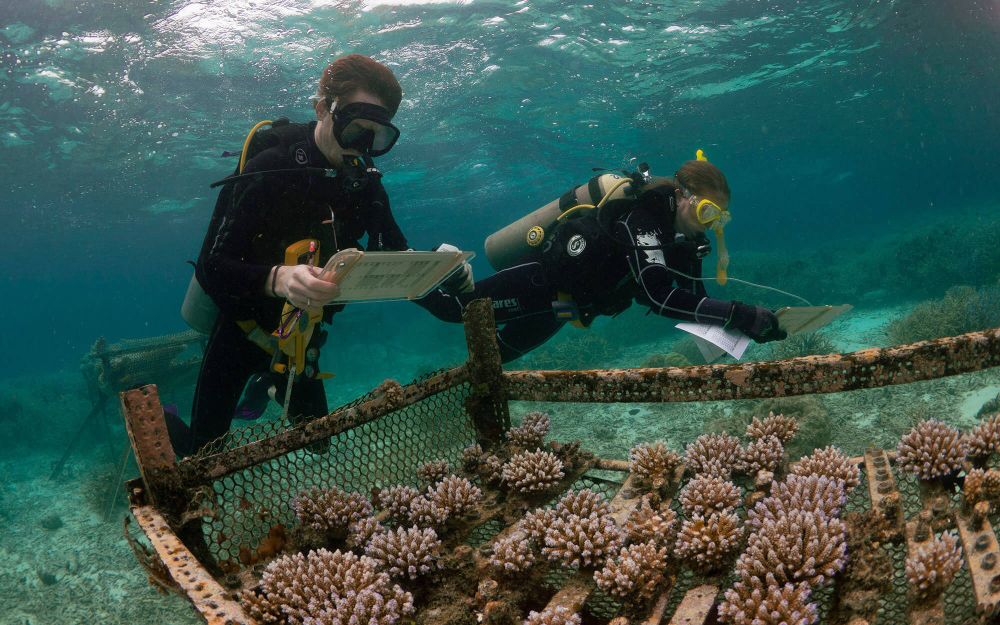
Part of the fruitful Coralassist Lab - PICRC collaboration, with support from the Horniman Museum, Uni. Of Exeter, Derby Uni. & Uni. Victoria
Funded by ERC, with support from UKRI / NERC
(9/9)
R&D is needed to optimise breeding interventions and maximise positive impacts.
Ultimately, reefs still depend on rapid reductions in greenhouse gas emissions.
(8/9)
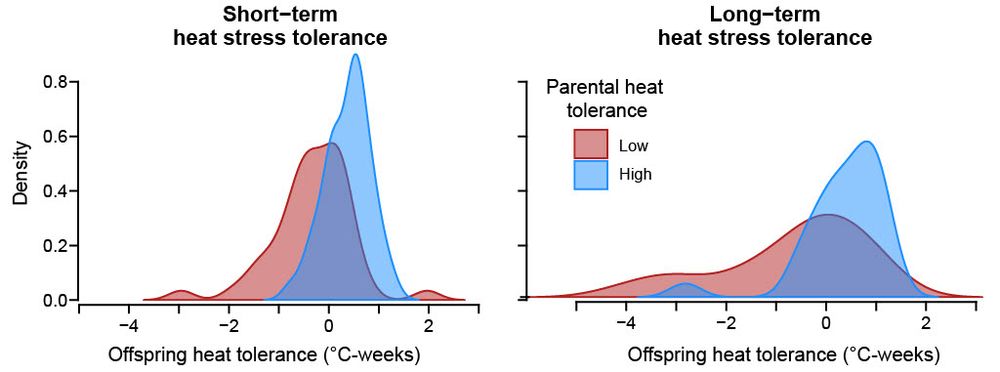
R&D is needed to optimise breeding interventions and maximise positive impacts.
Ultimately, reefs still depend on rapid reductions in greenhouse gas emissions.
(8/9)
To maximise coral fitness in the face of climate change, care will be needed when selecting which traits to breed for.
(7/9)
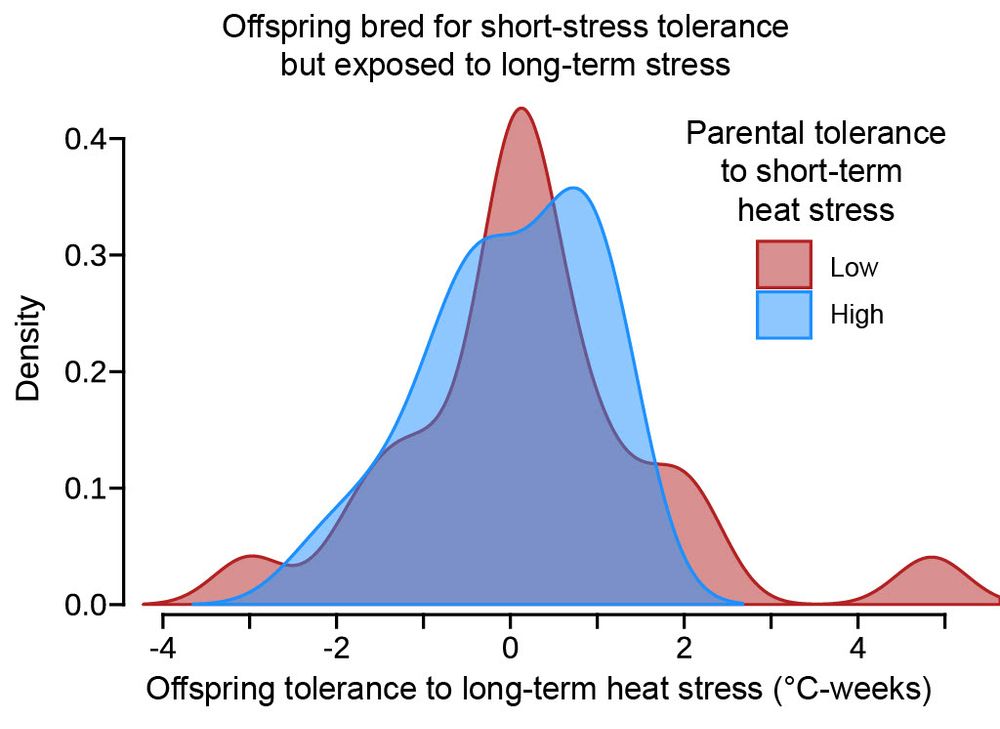
To maximise coral fitness in the face of climate change, care will be needed when selecting which traits to breed for.
(7/9)
The heritability of heat tolerance traits was ~0.2-0.3.
This means these traits have a substantial genetic basis but are also heavily influenced by other non-genetic factors.
(6/9)
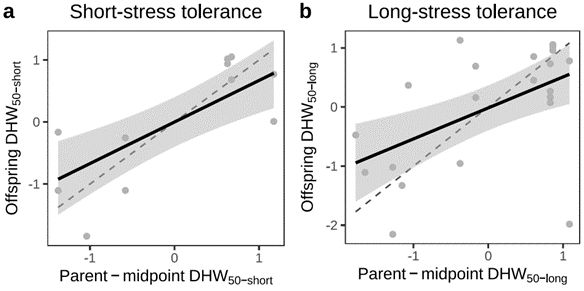
The heritability of heat tolerance traits was ~0.2-0.3.
This means these traits have a substantial genetic basis but are also heavily influenced by other non-genetic factors.
(6/9)
They can withstand the heat stress for a longer duration before the onset of bleaching and mortality.
(5/9)
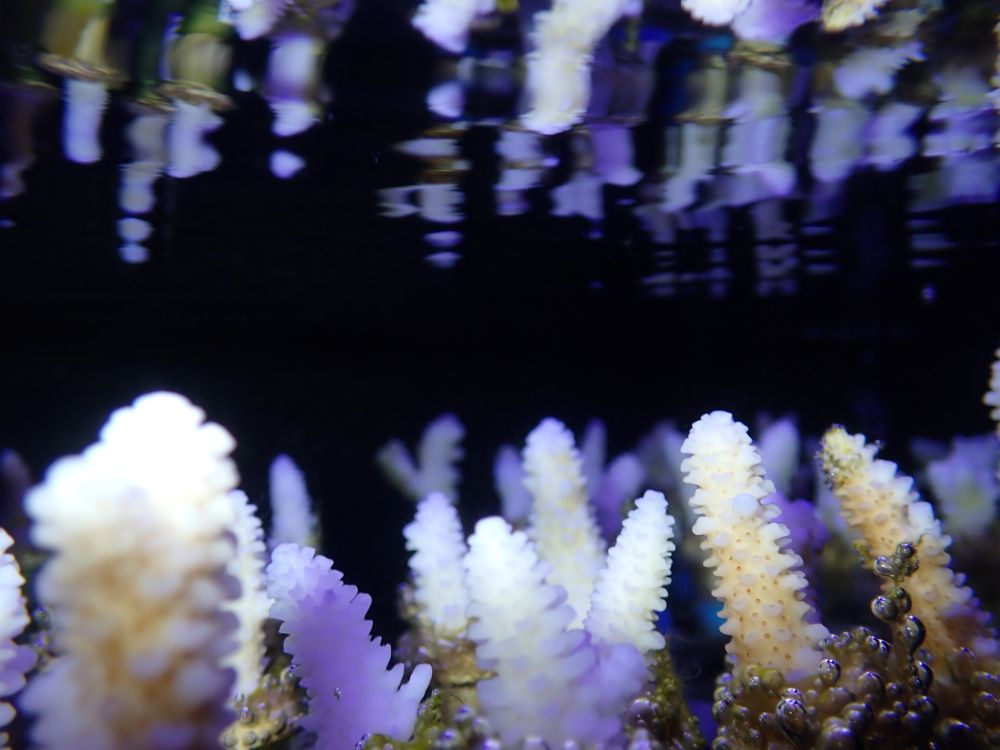
They can withstand the heat stress for a longer duration before the onset of bleaching and mortality.
(5/9)

